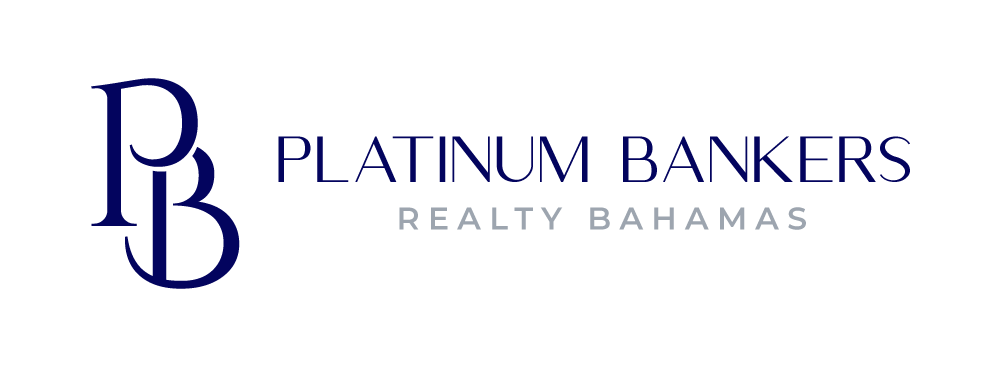BAHAMAS REAL ESTATE GUIDE FOR BUYERS
TAX ON CONVEYANCES: In the Bahamas, the taxation on real estate transactions varies depending on the value of the property. For transactions valued under $100,000, a 2.5% VAT tax applies. Properties valued between $100,001 to $300,000 incur a 4% VAT tax, while those between $300,001 to $500,000 are subject to a 6% VAT. The rates increase progressively, with 8% for properties valued at $500,001 to $700,000, 9% for $700,001 to $1 Million, and 10% for transactions exceeding $1 Million. However, first-time Bahamian home buyers enjoy a reduced rate of 4% for properties valued between $300,000 to $500,000. Typically, the VAT tax is shared equally between the buyer and the seller unless stated otherwise.
ANNUAL REAL PROPERTY TAX RATES: For owner-occupied residential properties, the first $300,000 is exempt from taxation. Properties valued between $300,000 and $500,000 incur a tax rate of 0.625% per annum, while the portion exceeding $500,000 is taxed at 1% per annum. However, as of 2022, there is a ceiling of $120,000 on the tax for owner-occupied homes. Unimproved properties not exempt under the Real Property Tax Act face a fee of $100 for the portion valued under $7,000 and a tax rate of 1.5% per annum for the exceeding value. Commercial properties are taxed at 1% per annum for the portion under $500,000 and 2% for the exceeding value. Various exemptions apply, including properties owned by Bahamians in the Family Islands, approved commercial farm lands, unimproved properties owned by Bahamians, properties used exclusively for charitable or public service purposes, and all properties in Freeport, Grand Bahama. Additionally, a 12% Value Added Tax (VAT) is charged on real estate services such as appraisals, legal work, and commissions.
OWNER-OCCUPIED HOME RENTALS: Owners of owner-occupied rental homes with one or more bedrooms must register if they intend to rent their premises to visitors. To maintain owner-occupied status, proprietors must reside in their homes for at least six months per year. Licenses for renting are obtainable through local Family Island Administrator's Offices or the Hotel Licensing Department of the Bahamas Ministry of Tourism and Aviation in Nassau.
RESIDENCY: International investors and homeowners with properties valued at $750,000 or more may apply for permanent residency, with expedited consideration for those with properties valued at $1.5 million or more. Applicants must demonstrate good character, financial support, and a commitment to permanent residency. The residency application may include spouses and dependent children under 18 years old. Annual residency cards are available for homeowners of Bahamian real estate, allowing them and their families to reside in the Bahamas for the duration of the permit, which is renewable annually or at 10 year intervals.
REAL PROPERTY TAX REVISIONS IN THE BAHAMAS
In the 2022/2023 Budget Communication by The Right Honourable Prime Minister Philip Davis QC, MP, the Bahamian Government outlined legislative changes impacting real estate transactions. These changes, reflected in the Real Property Tax (Amendment) Act, 2022, the Stamp (Amendment) Act, 2022, and the Value Added Tax (Amendment) Act, 2022, became effective on July 1, 2022.
A. New Definitions
Commercial Property:
Defined as any property utilized for business purposes, including those falling within the residential property definition's proviso.
Residential Property:
Refers to properties:
Not owner-occupied
Comprising up to four units (excluding out-buildings)
Owned by Bahamian citizens or VAT-registered individuals for commercial rental purposes
Solely used as dwelling places
Properties with more than four non-owner-occupied dwellings are classified as commercial.
Unimproved Property:
Refers to properties without any improvements, including those under construction unless occupied or certified.
Excludes properties used for business activities.
Value Definitions:
Unimproved Property: Determined by the Chief Valuation Officer based on market expectations.
Improvements: Replacement cost assessed by the Chief Valuation Officer.
Improved Property: Combination of unimproved value and replacement cost.
B. Owner-Occupied Properties
Corporate Ownership:
Properties owned by companies may qualify as owner-occupied if over 50% of shares are owned by a beneficial owner who exclusively uses the property as a dwelling.
Single Property Classification:
Individuals owning multiple residences for personal use have only one property classified as owner-occupied.
Married Couples:
Only one property jointly owned by a married couple is classified as owner-occupied if both properties are used as residences.
C. Revised Real Property Tax Rates (Effective January 1, 2022)
Owner-Occupied Property:
Increased exemption to $300K with a maximum annual cap of $120K.
New rates:
Up to $300K: Exempt
Exceeding $300K but not $500K: 0.625% per annum
Exceeding $500K: 1% per annum, capped at $120K annually
Commercial Property:
Reduced tax rate for properties valued over $500,000: 1% per annum (up to $2M) and 1.5% per annum (above $2M).
Other Properties:
Bahamian-owned: 1% of improvement value per annum
Non-Bahamian-owned: 1% of improvement value plus unimproved property amount
D. Assessment Rules:
Properties of one owner may be combined under one assessment number if contiguous and used for the same purpose.
E. Subdivision/Condominium Assessments:
Property owners must inform the Chief Valuation Officer within 30 days of receiving subdivision or condominium construction approval for separate assessments.
F. Tax Due Date:
Taxes due by March 31 annually, with surcharges accruing if unpaid by December 31.
G. Mortgagee Liability for Commercial Property:
Mortgagees remain liable for unpaid commercial property taxes if mortgage satisfaction isn't stamped in line with the Value Added Tax Act.
H. Power of Sale by Treasurer:
Only owner-occupied properties owned by Bahamian citizens are exempt from the Treasurer's power of sale.
I. Exemptions:
Properties owned by religious institutions, non-profits, trade unions, civic organizations, and burial societies are now exempt.



